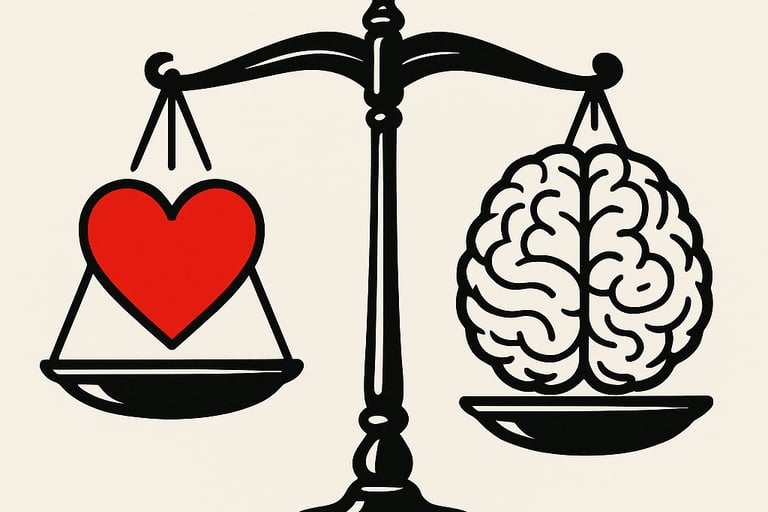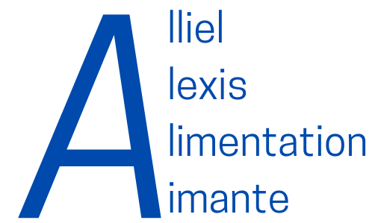Eating Disorder Screening Guide for Healthcare Professionals
Introduction: Your Essential Role in Early Detection
Dear colleagues, as healthcare professionals in France, you're often the first to witness the hidden struggle of eating disorders in your patients. An unexplained weight loss in a teenager, recurring dental issues in a young professional, chronic fatigue in a working parent... Behind these symptoms often lie eating disorders affecting nearly 900,000 people in France.
As a specialized eating disorder dietitian with over 10 years of experience in Paris, I've observed that the average time to diagnosis is 3-5 years. This diagnostic wandering isn't inevitable. With the right tools and appropriate referral pathways, we can dramatically transform these patients' care journey.
This guide, designed as a practical toolkit, synthesizes official French health authority (HAS) recommendations, specialized association resources, and clinical best practices. It will enable you to detect earlier, refer more effectively, and coordinate truly therapeutic care.
Recognizing Warning Signs: Beyond Weight
Early Somatic Manifestations
Eating disorders are never just about weight. Somatic signals are multiple and often overlooked:
Digestive and Oral Signs:
Dental erosion (lingual surface of incisors) suggesting vomiting
Bilateral parotid hypertrophy
Chronic refractory constipation
Persistent gastroesophageal reflux
Functional abdominal pain
Metabolic and Endocrine Signs:
Amenorrhea or oligomenorrhea (>3 months)
Resting bradycardia (<60 bpm)
Orthostatic hypotension
Excessive cold sensitivity, cold extremities
Paradoxical refeeding edema
Behavioral Indicators
Beyond physical symptoms, certain behaviors should alert you:
During Consultation:
Categorical refusal of weighing or extreme anxiety
Systematic minimization of symptoms
Highly controlled discourse about food
Paradoxical nutritional hyperknowledge
Systematic wearing of loose clothing
Reported by Family:
Progressive social isolation, especially at meals
Rigid food rituals (cutting into tiny pieces, specific eating order)
Compulsive physical hyperactivity
Disappearing to bathroom after meals
Unexplained massive food purchases
Validated Screening Tools: Simple and Effective
The SCOFF Questionnaire: 5 Questions to Screen
The SCOFF questionnaire remains the gold standard recommended tool:
The 5 SCOFF Questions:
S - Do you make yourself Sick because you feel uncomfortably full?
C - Do you worry you have lost Control over how much you eat?
O - Have you recently lost more than One stone (6kg) in 3 months?
F - Do you believe yourself to be Fat when others say you are thin?
F - Would you say Food dominates your life?
Interpretation: ≥ 2 positive answers = positive screening Performance: Sensitivity 94.6% - Specificity 94.7%
SOS Anor Test: The "Anorexic Mindset" Approach
SOS Anor offers a revolutionary approach with their online test (sosanor.org/tca-le-test/) exploring the mental functioning pattern typical of eating disorders rather than eating behaviors:
Focus on perfectionism and control
Cognitive rigidity assessment
Conditional self-esteem exploration
All-or-nothing thinking analysis
This approach helps detect atypical eating disorders and subsyndromal forms often invisible to classic questionnaires.
Referral Protocols: The Right Pathways
HAS Care Gradation
The French Health Authority defines 3 levels of care:
Level 1 - Non-specialized Local Care:
Trained general practitioner
Pediatrician or school doctor
Community mental health centers
Trained private dietitians → For: Screening, initial assessment, early eating disorders
Level 2 - Specialized Local Care:
Hospital eating disorder consultations
Day hospitals
Mobile eating disorder teams
Coordinated care networks → For: Confirmed eating disorders requiring expertise
Level 3 - Regional Reference Centers:
Specialized eating disorder units
Reference centers
Full-time hospitalization → For: Complex cases, therapeutic failures, vital emergencies
Immediate Referral Criteria
To Emergency Department:
BMI < 14 kg/m² (adult) or < 3rd percentile (child)
Bradycardia < 40 bpm or rhythm disorders
Hypokalemia < 3 mmol/L
Symptomatic hypoglycemia
Suicidal ideation with plan
Official Resources: Your Support Network
FFAB: Reference Federation
The French Federation Anorexia Bulimia structures national expertise since 2002:
Contact:
Website: ffab.fr
Email: ffabtca@gmail.com
Social media: @ffabtca (Twitter/X), @tout.sur.les.tca (Instagram)
Professional Resources:
National directory of specialized centers (updated 2021)
Best practice recommendations
Free regional training (National Plan)
University diploma programs
Specialized Helpline
Anorexia Bulimia Info Line: 09 69 325 900
Hours: 4-6pm, Monday/Tuesday/Thursday/Friday
Specialized professionals by day
Support for patients, families AND professionals
Referral to appropriate resources
MONPROTCA Platform: Finding the Right Professional
The monpro-tca.com website revolutionizes referral by guaranteeing truly trained professionals:
Strict referencing criteria:
Validated specific eating disorder training
Significant clinical experience
Non-restrictive, compassionate approach
Regular continuing education
Multidisciplinary network collaboration
Interprofessional Coordination: Key to Success
Recommended Minimum Team
Effective care requires at minimum:
Referring physician: Somatic monitoring, coordination
Mental health professional: Psychologist/psychiatrist for psychopathological aspects
Dietitian nutritionist: Non-restrictive nutritional rehabilitation
Best Communication Practices
Designate a clearly identified care coordinator
Establish regular consultation schedule
Use standardized liaison tools
Respect shared confidentiality with patient agreement
Involve patient as active team member
Practical Advice: Optimizing Your Practice
During Consultation
Creating Trust:
Avoid any judgment about weight or appearance
Use neutral, compassionate vocabulary
Respect resistance without confrontation
Validate the consultation process
Offer regular follow-up without pressure
Helpful Phrases:
"I understand this is difficult to talk about"
"We'll move at your pace"
"Your suffering is legitimate and deserves to be heard"
"Solutions exist, we'll find them together"
Common Pitfalls to Avoid
❌ Focusing only on weight
❌ Prescribing restrictive diets
❌ Minimizing if BMI is "normal"
❌ Blaming or moralizing
❌ Promising quick recovery
❌ Working alone without network
You might also be interested in Professionnal coaching, or Understanding Fatphobia, or an article for Parents and close ones
📚 SOURCES ET RÉFÉRENCES


Vivre et manger sont les deux faces de la même pièce
Lighten your relationship with food and free yourself from what hinders you!
+33 6 22 41 55 21
© 2024. All rights reserved.
RPPS : 10007258733
N° ADELI : 75 95 0878 1
